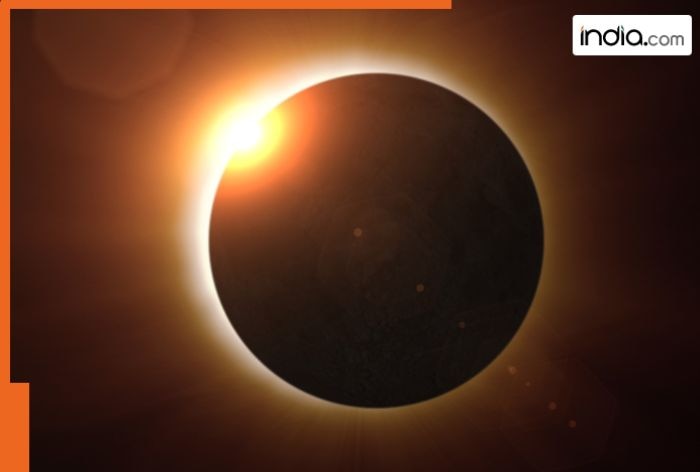Solar Eclipse: When will the next Solar Eclipse occur? These countries to witness this spectacular phenomenon, to take place on…
The total solar eclipse in Iceland will last for about two minutes and 18 seconds. It will be seen just over Breiðafjörður Bay between the Westfjords and Snæfellsnes Peninsula.

Our planet, Earth, is full of interesting natural phenomena that can capture human curiosity and imagination. The attention-grabbing image of rainbow colors, and the ever-impressive tails from comets and meteors as they burn across the night sky is only one example of how our planet, and its local cosmic neighborhood, is full of stunning activity.
What is a solar eclipse, and why does it occur?
Some even interstellar travelers give us a peek into cosmic neighborhoods well beyond our solar system. Among these remarkable occurrences, who can we forget about the solar eclipse? It is one of the phenomena that stands out—not just for its beautiful appearance—but for the significant cultural, scientific, and astronomical impact that a solar eclipse has on societies around the world.
According to the official website of NASA, an eclipse is an awe-inspiring celestial event that drastically changes the appearance of the two biggest objects we see in our sky: our Sun and Moon. Solar eclipses occur when the Sun, the Moon, and Earth line up, either fully or partially. Depending on how they align, eclipses provide a unique, exciting view of either the Sun or the Moon. There are different types of solar eclipses: Total, partial, hybrid, and annular.
Lunar eclipses occur at the full Moon phase. “When Earth is positioned precisely between the Moon and Sun, Earth’s shadow falls upon the surface of the Moon, dimming it and sometimes turning the lunar surface a striking red over the course of a few hours,” as stated by NASA.
When will the next solar eclipse happen worldwide?
Total solar eclipses will be few and far between from 2026 to 2030. In 2026 and 2027, total solar eclipses will be visible in regions such as Iceland, Spain, Egypt, and parts of North Africa.
Which countries will witness this event?
According to the BBC report, a total solar eclipse will occur on August 12, 2026. The path of totality will take it across the Arctic Ocean, eastern Greenland, western Iceland, and northern Spain. The 2026 solar eclipse will cross Mallorca, Menorca, and Ibiza, where totality will occur over the Balearic Sea from one-and-a-half to two minutes, BBC reported.
The total solar eclipse in Iceland will last for about two minutes and 18 seconds. It will be seen just over Breiðafjörður Bay between the Westfjords and Snæfellsnes Peninsula. In Greenland, the totality lasting approximately two minutes and 17 seconds will also cross uninhabited sections of Greenland’s eastern coast and sea, as reported by the BBC.
On August 2, 2027, a solar eclipse will take place, traveling across chunks of southern Spain, North Africa, and the Middle East. According to the BBC report, this will be the longest total eclipse that can be seen on land in the twenty-first century. In Luxor, Egypt, the duration will be six minutes and twenty-three seconds.
What's Your Reaction?




















































